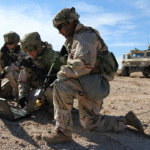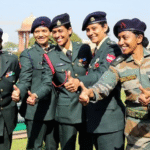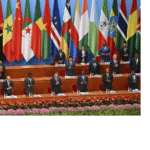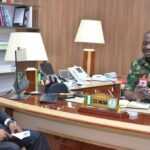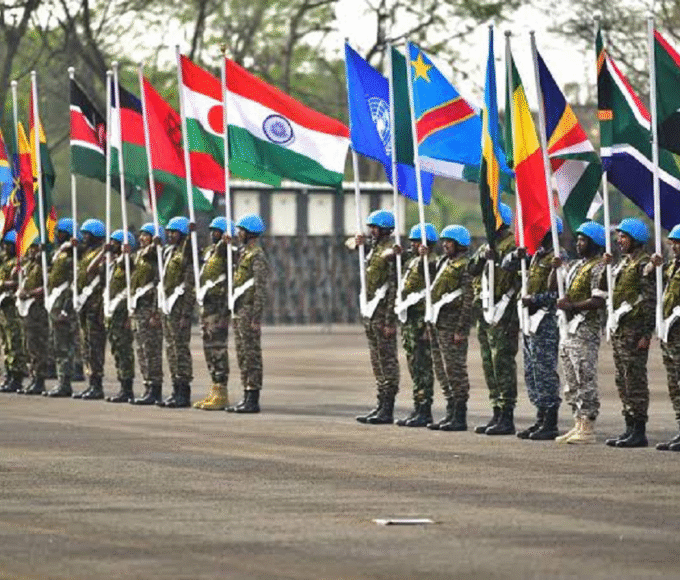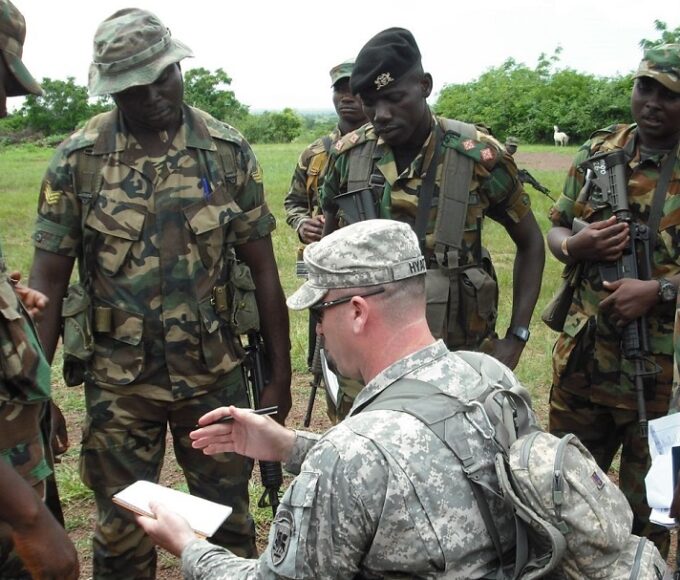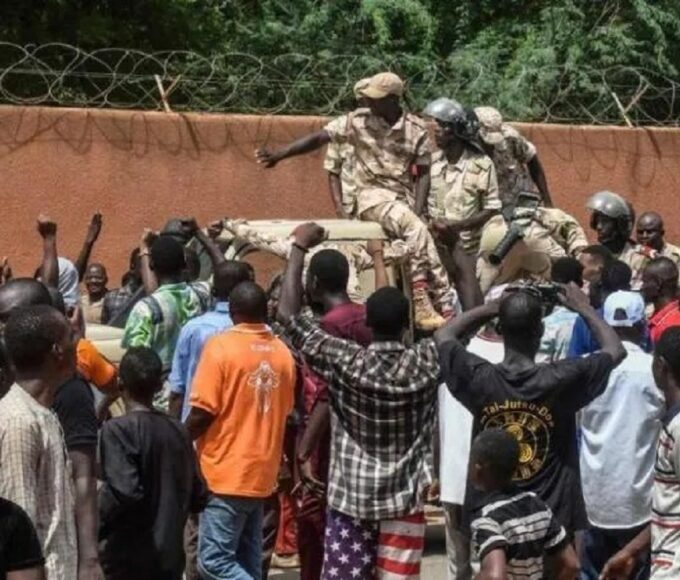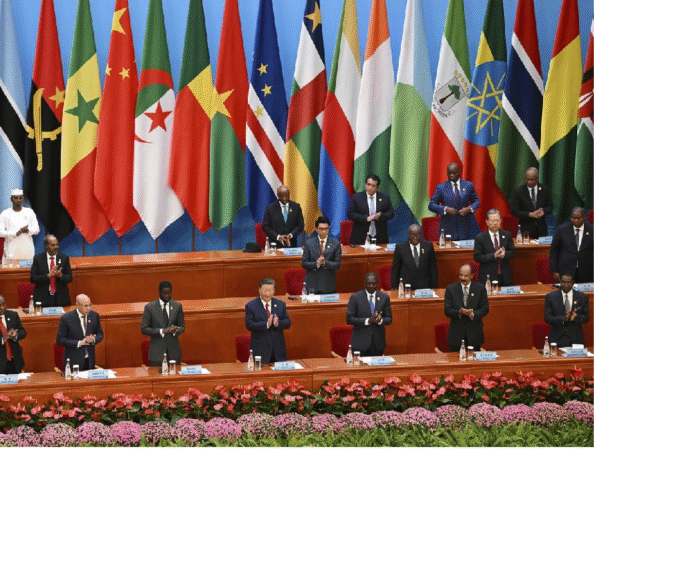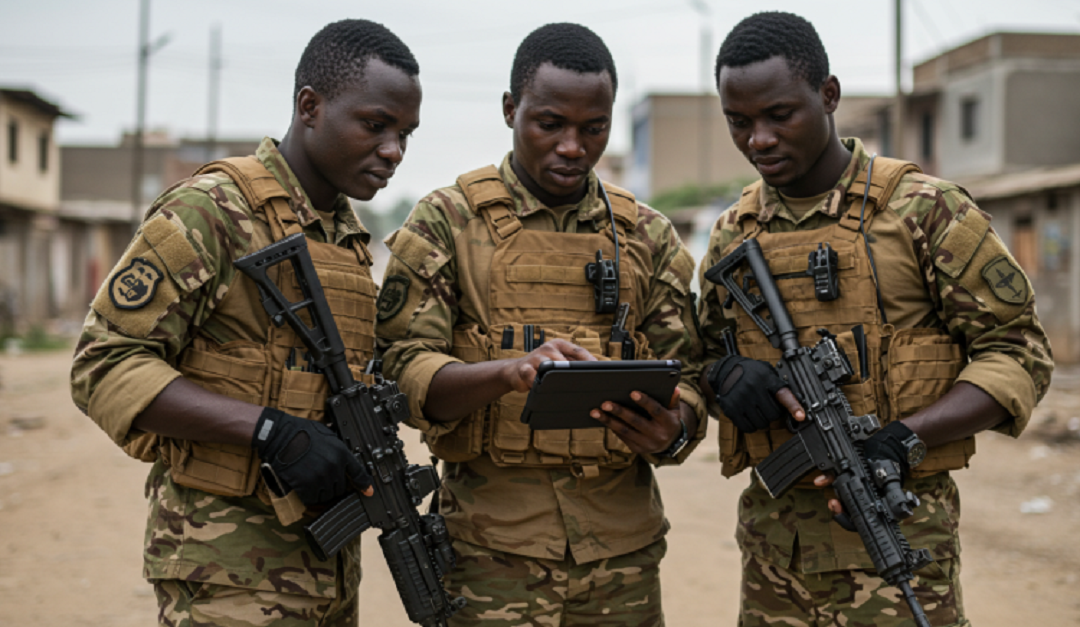
AI AND AFRICA’S MILITARY INTELLIGENCE: PROMISE AND PERIL IN A TRANSFORMING SECURITY LANDSCAPE
Africa’s military landscape is entering a new chapter, shaped by the rapid rise of artificial intelligence (AI). Once seen as futuristic, AI tools are now being folded into the day-to-day work of intelligence agencies across the continent from scanning satellite images and monitoring borders to predicting where the next insurgent strike might occur. The push reflects both necessity and ambition: with limited resources but mounting threats from terrorism, insurgencies, and organized crime, African nations are turning to technology to fill the gaps. Yet this transformation brings its own dilemmas. While AI promises faster decisions and smarter security strategies, it also raises difficult questions about ethics, sovereignty, and the risks of unchecked deployment.
The move toward AI began in the early 2020s, as African states sought to keep pace with global trends. South Africa took a leading role in 2024, setting up the Defence Artificial Intelligence Research Unit to sharpen threat assessment and improve operational efficiency. Nigeria and Kenya soon adopted AI-driven drones to bolster border surveillance, building on their long battles against Boko Haram and al-Shabaab. The African Union also began exploring ways to use AI in its peace and security programs, particularly for conflict early warning. These steps marked a shift away from purely human-cantered intelligence toward hybrid systems, often developed with help from outside powers such as China and the United States, eager to strengthen ties through technology transfers.
Related Article: BIOMETRIC BORDERS: AFRICA’S EXPERIMENTS IN SMART SECURITY
For many governments, the attraction is clear. AI can sift through vast amounts of information satellite images, intercepted communications, even social media chatter far faster than any human analyst. In countries like Ghana and Mauritius, which first experimented with AI in agriculture and health, the same tools are now being adapted to track smuggling networks or identify insurgent movements. Analysts believe this kind of predictive power could save lives by allowing militaries and peacekeepers to anticipate flashpoints rather than simply react to them.
AI also offers new ways to strengthen cooperation across the continent. Shared platforms could help neighbours monitor porous borders, while simulations powered by AI could improve peacekeeping logistics in tough regions such as the Sahel or the Horn of Africa. Joint forums, including the Forum on China-Africa Cooperation, have already pledged AI support for counterterrorism training. By automating routine tasks, these systems could ease pressure on overstretched intelligence units, freeing human officers to focus on strategy and diplomacy.
Still, the risks are hard to ignore. AI systems are only as good as the data they are trained on, and in diverse African contexts, incomplete or biased datasets could lead to grave mistakes such as misidentifying civilians as threats. The “black box” nature of many AI models makes it difficult to explain or challenge their conclusions, raising accountability concerns if something goes wrong. Libya’s use of AI-equipped drones during its civil conflict underscored these dangers, fuelling debate about how much autonomy such systems should ever be allowed.
Cybersecurity is another pressing concern. Many African militaries lack the digital infrastructure needed to secure their networks against hacking or manipulation. Experts warn that adversaries could exploit these weaknesses, launching disinformation campaigns or even false flag operations with the help of AI. The spread of tools like deep fakes only increases the danger. And as technology becomes cheaper, there is the additional risk that non-state actors whether militias or terrorist groups could harness AI for their own operations, creating a new layer of asymmetric warfare.
Examples from across the continent illustrate both sides of the equation. South Africa’s dedicated AI research unit shows how carefully managed adoption can modernize intelligence. In contrast, Libya’s deployment of autonomous drones revealed the risks of deploying technology without robust oversight. West African projects led by organizations such as the Stockholm International Peace Research Institute (SIPRI) highlight AI’s potential for peacebuilding, but also caution against its misuse in humanitarian efforts or the widening of inequalities between wealthier and poorer states.
The challenge will be striking a balance in harnessing AI’s potential without letting it spiral out of control. Regional frameworks, ethical guidelines, and stronger cybersecurity systems will be critical. The African Union, supported by global think tanks and development partners, has already begun calling for investment in AI education and governance to ensure that no country is left behind. If managed responsibly, Africa could not only strengthen its defences but also position itself as a leader in shaping global norms for ethical military technology.
King Richard Igimoh, Group Editor ALO
King Richard Igimoh, Group Editor African Leadership Organisation is an award-winning journalist, editor, and publisher with over two decades of expertise in political, defence, and international affairs reporting. As Group Editor of the African Leadership Organisation—publishers of African Leadership Magazine, African Defence & Security Magazine, and Africa Projects Magazine—he delivers incisive coverage that amplifies Africa’s voice in global security, policy, and leadership discourse. He provides frontline editorial coverage of high-profile international events, including the ALM Persons of the Year, the African Summit, and the African Business and Leadership Awards (ABLA) in London, as well as the International Forum for African and Caribbean Leadership (IFAL) in New York City during the United Nations General Assembly.
Recent Posts
Categories
- Air & Aerospace16
- Border Security15
- Civil Security4
- Civil Wars4
- Crisis5
- Cyber Security8
- Defense18
- Diplomacy19
- Entrepreneurship1
- Events5
- Global Security Watch6
- Industry8
- Land & Army8
- Leadership & Training5
- Military Aviation5
- Military History27
- Military Speeches1
- More1
- Naval & Maritime9
- Resources2
- Security12
- Special Forces1
- Systems And Technology9
- Tech6
- Uncategorized3
- UNSC1
- Veterans6
- Women in Defence9
Related Articles
INDIA’S GROWING MILITARY PARTNERSHIPS WITH AFRICA
India’s engagement with Africa is undergoing a quiet but powerful transformation. What...
ByKing Richard Igimoh, Group Editor ALOOctober 14, 2025EVOLVING HORIZONS: TRAINING THE AFRICAN SOLDIER IN A CHANGING LANDSCAPE
The training of African soldiers has undergone a profound transformation in recent...
ByKing Richard Igimoh, Group Editor ALOOctober 2, 2025COLD WAR AFRICA: PROXY WARS AND THEIR IMPACT
The Cold War in Africa, spanning from the late 1940s to the...
ByKing Richard Igimoh, Group Editor ALOSeptember 26, 2025CHINA’S EXPANDING MILITARY FOOTPRINT IN AFRICA: A NEW ERA OF GLOBAL COMPETITION
China’s military presence in Africa is no longer a side note to...
ByKing Richard Igimoh, Group Editor ALOSeptember 22, 2025


